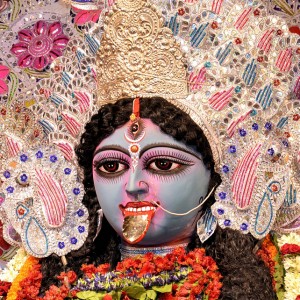 Kali Puja is a Hindu festival that is celebrated in Bangladesh in the month of Ashwin (around October or November). Shiva is one of the three gods of the Hindu Triad, and Kali is one of his female energies, of which he has ten female energies. There are a variety of legends and stories about her, and she is known by various names, according to her aspects, such as Bhadra, Daksin, Raksa, Guhya and Shmashan. Kali Puja is not an ancient festival, as it was only introduced to Bengal by King Raja Krishnachandra of Navadvipa during the eighteenth century.
Kali Puja is a Hindu festival that is celebrated in Bangladesh in the month of Ashwin (around October or November). Shiva is one of the three gods of the Hindu Triad, and Kali is one of his female energies, of which he has ten female energies. There are a variety of legends and stories about her, and she is known by various names, according to her aspects, such as Bhadra, Daksin, Raksa, Guhya and Shmashan. Kali Puja is not an ancient festival, as it was only introduced to Bengal by King Raja Krishnachandra of Navadvipa during the eighteenth century.
Through the grandson of Krishanachandra, Ishvarchandra, the Kali Puja festival gained popularity. The elite of Bangladesh, including wealthy members of the public, would participate in the celebrations, promoting Kali Puja into becoming one of the largest festivals dedicated to a goddess. Clay idols and shrines are created in the homes of worshippers, and mantras, as well as Tantric rites, are performed in the evening. Followers will also pay homage to her by laying down offerings that include rice, lentils, meat, red hibiscus flowers, sweets and even animal blood. Animals are also sacrificed during this time. In Kolkata, worshippers get together on a piece of land, cremation ground, where followers believe she once dwelled. The Kolkata Kalighat Temple is a site of pilgrimage for many who visit the temple, which is dedicated to Kali, to present their animal sacrifices. Images of Shiva are also displayed, and pandals are visited at night. Celebrations include a fireworks display, the dinking of wine, magic shows and theater productions.
Kali is a feared goddess, and Kalika Purana described her by saying: “Kali as possessing a soothing dark complexion, as perfectly beautiful, riding a lion, four-armed, holding a sword and blue lotuses, her hair unrestrained, body firm and youthful”. And even though she is feared by her followers, many see her as the kindest of the ten Hindu goddesses. Her devotees view her as the Mother of the entire universe. During Kali Puja, most worshippers in Bangladesh celebrate the festival in the privacy of their own homes, but will attended public events that feature light shows and other elaborate rituals that form part of the celebrations.
